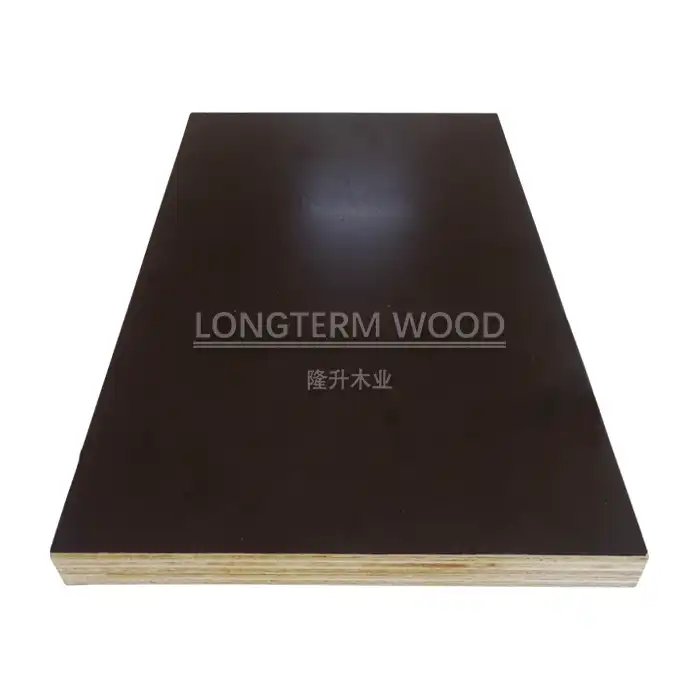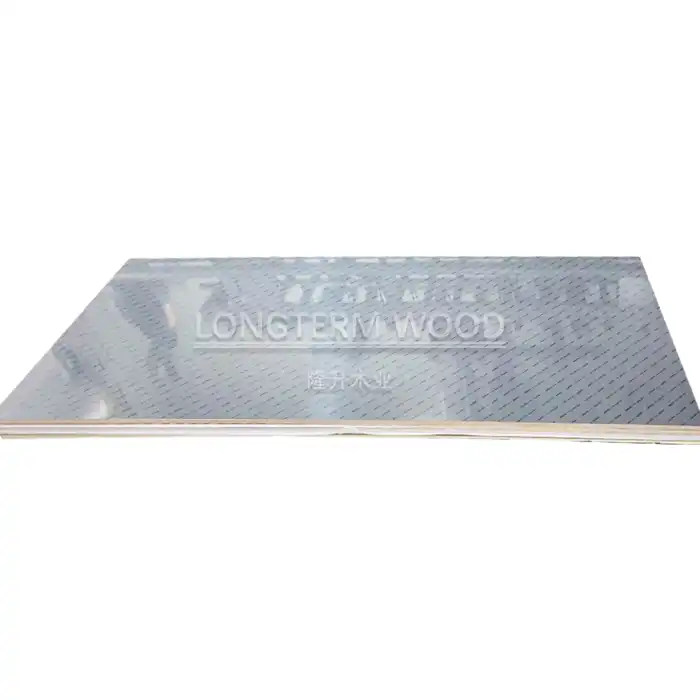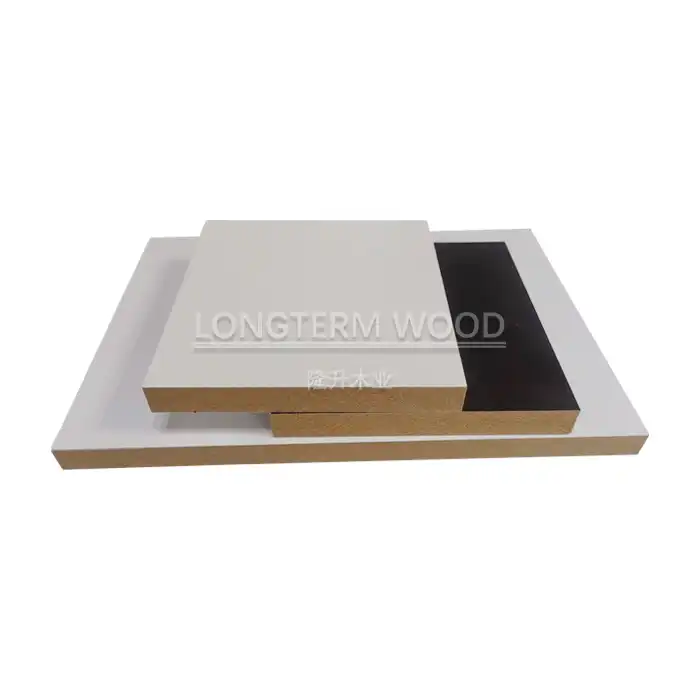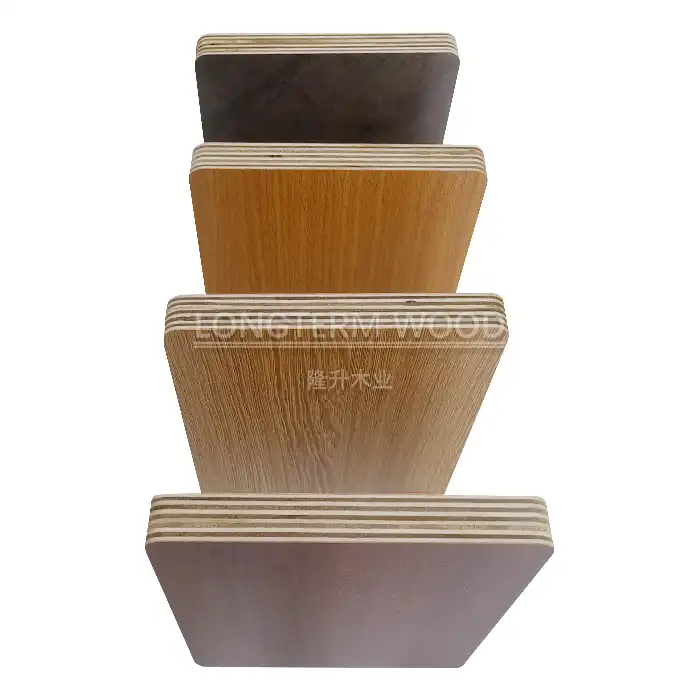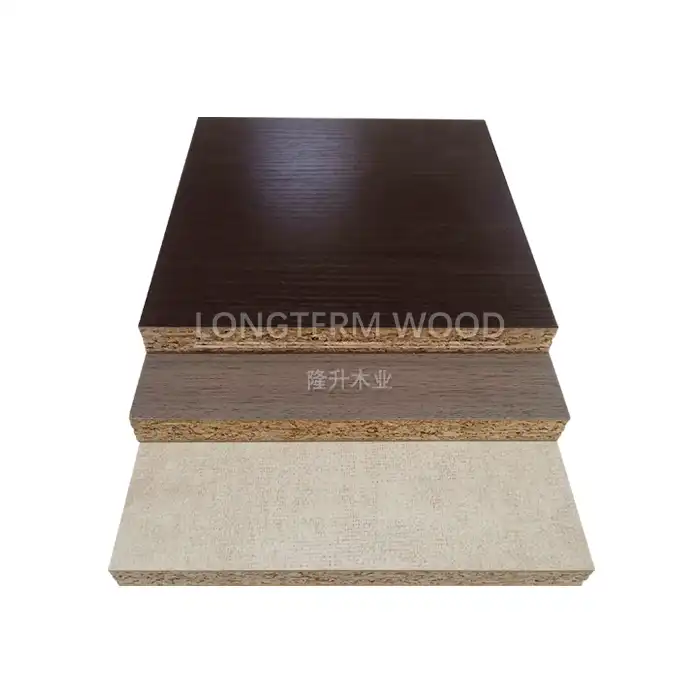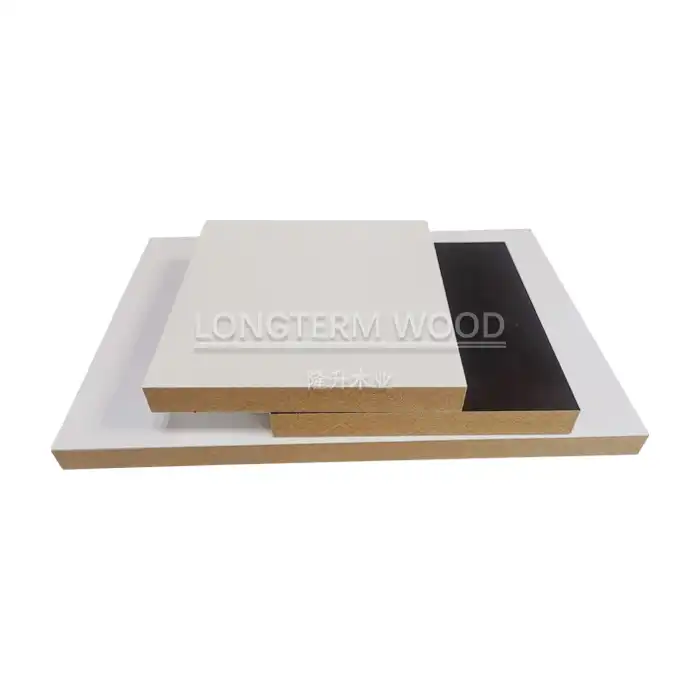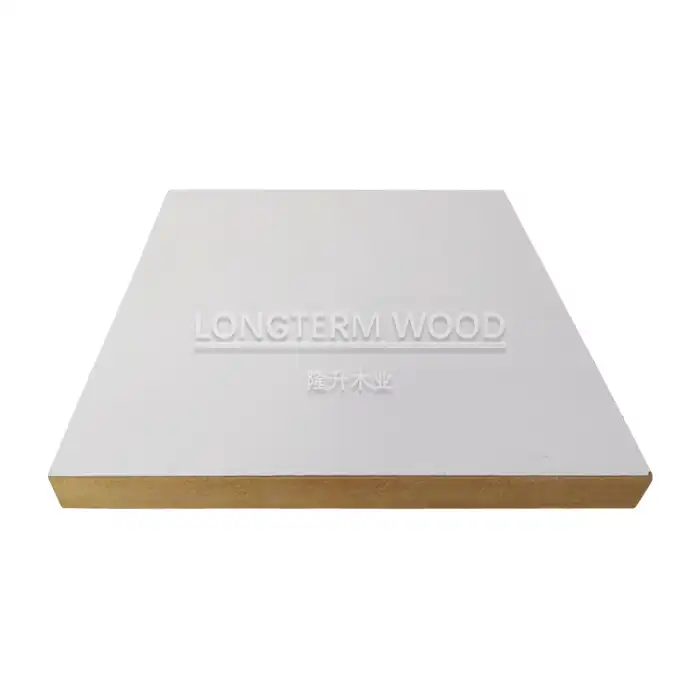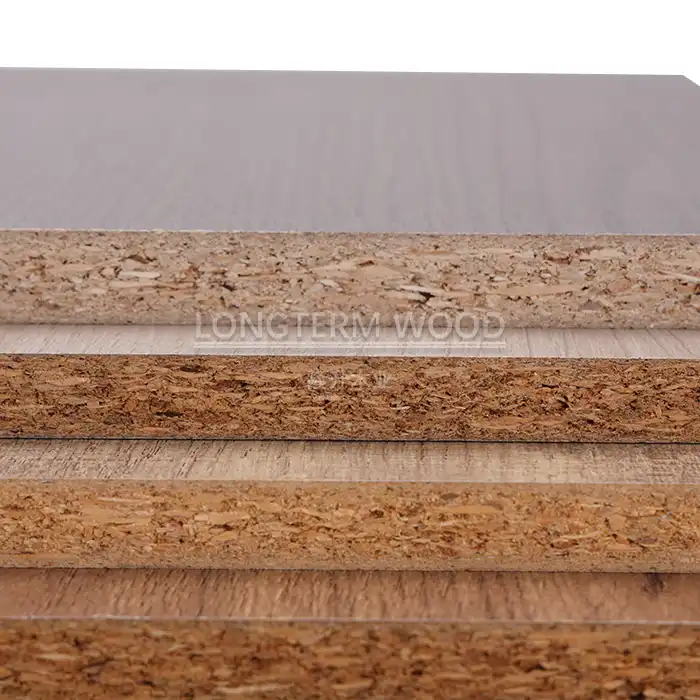
What Makes Melamine Plywood Easy to Clean?
2025-05-09
In the world of interior design and furniture manufacturing, the ease of maintenance is a critical factor when selecting materials. Melamine plywood stands out as an exceptional choice for those seeking surfaces that combine aesthetic appeal with practical maintenance qualities. This blog explores the unique properties that make melamine plywood remarkably easy to clean, making it an ideal material for environments where hygiene and appearance must be maintained with minimal effort.
Melamine plywood features a specialized resin-infused surface that creates a non-porous barrier against moisture, stains, and bacteria. This protective layer prevents substances from penetrating the material, allowing for simple wipe-down cleaning with standard household products. Unlike untreated wood that can absorb liquids and harbor bacteria, melamine plywood's smooth, sealed surface repels contaminants, making it perfect for kitchens, bathrooms, and high-traffic commercial spaces where cleanliness is paramount.
The Science Behind Melamine Plywood's Cleanability
Chemical Composition and Surface Structure
The exceptional cleanability of melamine plywood stems directly from its unique chemical makeup. At its core, melamine plywood consists of wood veneers layered and bonded together, but what truly distinguishes it is the melamine resin that coats its surface. This resin is created through a sophisticated process of thermosetting, where melamine formaldehyde resin is impregnated into decorative paper and then heat-pressed onto the plywood substrate. The resulting surface exhibits remarkable molecular stability, creating a non-porous barrier that prevents liquids and stains from penetrating below the surface.
Unlike conventional wood materials that feature microscopic pores which trap dirt, bacteria, and moisture, Melamine Plywood presents a unified, seamless surface at the microscopic level. This structurally superior composition means that contaminants remain on the surface rather than becoming embedded within the material. Electron microscopy studies have confirmed that the melamine layer creates an almost glass-like barrier that's incredibly resistant to infiltration by foreign substances. This scientific property directly translates to practical benefits in daily use, as most cleaning challenges are reduced to simple surface removal rather than deep extraction processes required with more porous materials.
Stain Resistance Technology
The stain-resistant properties of Melamine Plywood represent one of its most valuable cleaning advantages. The melamine resin creates a powerful barrier against common household stains including coffee, wine, ink, and food colorings that would permanently mark untreated wood. This resistance operates through two distinct mechanisms: first, the non-porous surface prevents immediate absorption; second, the chemical composition of the melamine resin actively repels many common staining agents through its hydrophobic properties.
Laboratory testing of Melamine Plywood has demonstrated impressive resistance against a wide spectrum of potential contaminants. When exposed to substances ranging from acidic fruit juices to oil-based compounds, Melamine Plywood consistently outperforms traditional wood finishes and many competing engineered materials. This exceptional stain resistance doesn't deteriorate significantly over time, maintaining its protective capabilities throughout years of normal use. For environments where spills occur frequently, such as kitchens, dining areas, or commercial settings, this inherent stain resistance dramatically reduces maintenance requirements and extends the aesthetic lifespan of the installed material. At Linyi Longterm Wood Industry, our Melamine Plywood undergoes rigorous stain-resistance testing to ensure superior performance against even the most challenging household substances.
Antimicrobial Properties
Beyond its physical cleaning advantages, Melamine Plywood offers significant health benefits through its inherent antimicrobial properties. The smooth, sealed surface of high-quality Melamine Plywood creates an inhospitable environment for bacteria, mold, and mildew that commonly colonize more porous materials. This characteristic is particularly valuable in environments where hygiene is paramount, such as kitchen surfaces, bathroom cabinetry, healthcare facilities, and educational institutions.
The superior microbial resistance of Melamine Plywood stems from multiple factors working in concert. First, the non-porous surface eliminates the microscopic crevices where microorganisms typically establish colonies. Second, the chemical composition of quality melamine resin naturally inhibits microbial growth by denying organisms the moisture they require for reproduction. Third, the smooth surface prevents the accumulation of organic matter that would otherwise serve as a food source for microbes. Independent laboratory tests have confirmed that properly maintained Melamine Plywood harbors significantly fewer viable bacteria compared to natural wood surfaces and many other manufactured materials. This makes our Melamine Plywood an excellent choice for anyone concerned with maintaining hygienic conditions with minimal chemical intervention. The antimicrobial properties, combined with easy cleanability, make it particularly suitable for facilities serving vulnerable populations or those with stringent hygiene requirements.
Practical Cleaning Methods for Melamine Plywood
Daily Maintenance Techniques
Maintaining the pristine appearance of Melamine Plywood requires remarkably little effort compared to traditional wood products. For routine cleaning, a simple wipe-down with a soft microfiber cloth moistened with warm water is typically sufficient to remove dust, fingerprints, and light soil. This straightforward approach prevents the buildup of grime that can eventually become more challenging to remove. For slightly more stubborn everyday soiling, adding a small amount of mild, pH-neutral dish soap to your cleaning solution provides additional cleaning power without risking damage to the melamine surface.
The non-porous nature of Melamine Plywood means that cleaning can be accomplished with minimal moisture, which is a significant advantage over materials that might warp or deteriorate with repeated exposure to water. When cleaning Melamine Plywood surfaces, always remember to work with a gentle touch – the durable surface rarely requires aggressive scrubbing that might eventually compromise the finish. For vertical surfaces like cabinet fronts or wall panels, cleaning from top to bottom prevents dripping and streaking. One of the most appreciated aspects of Melamine Plywood's daily maintenance is that it doesn't require specialized cleaning products or techniques – the same simple cleaning routine will maintain its appearance year after year. At Linyi Longterm Wood Industry, we recommend establishing a regular cleaning schedule for your Melamine Plywood installations, with frequency determined by usage patterns, to maximize the material's inherent low-maintenance qualities.
Handling Tough Stains and Spills
Despite Melamine Plywood's remarkable resistance to staining, occasional challenging situations may arise that require more targeted cleaning approaches. When confronting tougher stains or spills, timing is crucial – the sooner the contaminant is addressed, the less likely it is to leave a lasting mark. For fresh spills, quickly blotting (not rubbing) with an absorbent cloth removes the majority of the substance before it can interact with the surface. For dried or set-in stains on Melamine Plywood, begin with the gentlest effective solution: a mixture of warm water with a small amount of mild detergent, applied with a soft cloth using circular motions.
For more persistent stains, gradually escalate cleaning methods while constantly monitoring to avoid surface damage. A paste made from baking soda and water can safely address many stubborn marks when allowed to sit briefly on the stain before gentle wiping. For ink or marker stains, a small amount of isopropyl alcohol on a cloth often proves effective on Melamine Plywood without damaging the finish. Extremely challenging situations may call for specialized melamine cleaning products, which are formulated to dissolve tough residues while preserving the surface integrity. However, harsh abrasives, scouring pads, and highly caustic cleaning agents should always be avoided as they may scratch or etch the melamine surface. The superior quality Melamine Plywood from Linyi Longterm Wood Industry features an exceptionally durable finish that stands up to occasional intensive cleaning while maintaining its appearance and performance characteristics.
Long-term Maintenance Strategies
Preserving the easy-clean properties of Melamine Plywood over years of service requires thoughtful long-term maintenance strategies. While the material doesn't demand complex care regimens like natural wood, certain practices will significantly extend its functional lifespan and appearance. First and foremost, protecting Melamine Plywood from excessive direct sunlight prevents UV degradation that can eventually affect the surface's integrity and cleaning properties. In locations with intense natural light, window treatments or UV-filtering films provide valuable protection.
Temperature and humidity stability also contribute significantly to the longevity of Melamine Plywood's cleanable surface. Extreme fluctuations can potentially stress the material over time, potentially causing minute changes that affect its cleaning characteristics. In environments with significant temperature or humidity variations, climate control systems help maintain optimal conditions. For Melamine Plywood in high-wear applications, periodic inspection for any signs of edge or surface wear allows for early intervention before problems affect larger areas. If minor damage does occur, specialized edge banding and touch-up products can restore the protective barrier.
Professional assessment every few years can identify any emerging maintenance needs before they become significant issues. The exceptional durability of Melamine Plywood from Linyi Longterm Wood Industry means that with appropriate preventive care, its easy-clean properties typically remain effective throughout decades of normal use. This remarkable longevity makes it not only a practical choice for immediate cleaning convenience but also a sound long-term investment in reduced maintenance costs and sustained appearance.
Applications Benefiting from Melamine Plywood's Cleanability
Kitchen and Bathroom Environments
The kitchen and bathroom present uniquely challenging environments for building materials, combining moisture exposure, temperature fluctuations, food residues, and hygiene concerns. These spaces particularly benefit from Melamine Plywood's exceptional cleanability characteristics. In kitchen applications, Melamine Plywood cabinetry withstands daily cooking splashes, food preparation messes, and the occasional spill without absorbing odors or harboring bacteria that can compromise food safety. The ability to quickly sanitize these surfaces with standard household cleaners makes Melamine Plywood an ideal material for maintaining the hygienic conditions essential for food preparation areas.
Bathroom applications similarly capitalize on Melamine Plywood's moisture resistance and cleanability. The constant humidity and occasional water splashes that characterize bathroom environments can quickly deteriorate many materials, but properly sealed Melamine Plywood maintains its integrity and appearance. From vanity cabinets to shower surrounds in modern bathrooms, the material stands up to daily cleaning with bathroom disinfectants without degradation. For families with young children or elderly members, the ease of maintaining sanitary conditions in these critical spaces represents a significant advantage. The aesthetic versatility of Melamine Plywood further enhances its suitability for these spaces – available in finishes ranging from wood grain patterns to solid colors and high-gloss options, it adapts to any design vision while maintaining its practical benefits. Linyi Longterm Wood Industry offers specialized moisture-resistant formulations of Melamine Plywood specifically engineered for these demanding applications, combining maximum durability with minimum maintenance requirements.
Commercial and Healthcare Settings
Commercial environments and healthcare facilities present some of the most demanding cleaning requirements for building materials, making Melamine Plywood's easy-clean characteristics particularly valuable in these settings. In commercial applications such as retail fixtures, office furniture, and hospitality installations, Melamine Plywood withstands frequent cleaning protocols without showing premature wear or degradation. The high-traffic nature of these environments means surfaces must endure constant touching, occasional impacts, and regular maintenance cleaning – conditions where Melamine Plywood demonstrates remarkable resilience compared to alternatives.
Healthcare settings represent perhaps the most stringent test of any material's cleanability, with requirements for disinfection, stain resistance, and durability that exceed most other applications. Melamine Plywood meets these challenges effectively, providing surfaces that can be thoroughly sanitized between patient contacts without material deterioration. Modern healthcare design increasingly recognizes the importance of creating spaces that not only function well but also create healing environments – the wide range of aesthetic options available in Melamine Plywood supports this dual goal. The non-porous surface inhibits bacteria harboring, while its compatibility with healthcare-grade disinfectants ensures proper sanitization can be achieved without compromising material integrity.
In both commercial and healthcare applications, the cost efficiency of Melamine Plywood from Linyi Longterm Wood Industry delivers exceptional value over the installation's lifetime. The reduced maintenance requirements translate directly to lower operational costs, while the extended durability means less frequent replacement compared to materials with inferior cleaning characteristics. For facility managers balancing budget constraints with performance requirements, these combined benefits make Melamine Plywood an increasingly popular choice for environments where cleanliness cannot be compromised.
Educational and High-Traffic Facilities
Educational facilities and other high-traffic public spaces present unique cleaning challenges that Melamine Plywood is exceptionally equipped to address. School environments combine intense daily use with periodic deep cleaning requirements and the need for surfaces resistant to the creative exploration of young learners. Classroom furniture, wall panels, storage units, and fixed installations constructed from Melamine Plywood maintain their appearance and functionality despite marker mishaps, craft project spills, and the constant touching characteristic of learning environments. The ease with which these surfaces can be returned to a clean, hygienic state between classes or activities supports both operational efficiency and student health.
Beyond traditional educational settings, other high-traffic facilities such as transportation hubs, entertainment venues, and public buildings benefit similarly from Melamine Plywood's cleaning advantages. These spaces must withstand not only heavy use but also varied cleaning protocols aimed at different types of soiling. The versatility of Melamine Plywood allows maintenance staff to address everything from food spills to ink marks using appropriate cleaning methods without concern for damaging the material. This adaptability significantly streamlines maintenance operations in complex facilities with diverse cleaning needs.
The durability aspect of Melamine Plywood proves particularly valuable in budget-conscious public and educational facilities, where replacement costs and downtime must be minimized. When properly specified and installed, Melamine Plywood from Linyi Longterm Wood Industry typically maintains its appearance and cleanability characteristics through years of intensive use, representing an excellent return on investment compared to materials requiring more frequent replacement or refinishing. The material's environmental credentials, including adherence to stringent E1 and E0 emission standards, further enhance its suitability for spaces occupied by developing minds and bodies, where indoor air quality is a primary concern alongside practical maintenance considerations.
Conclusion
Melamine plywood's exceptional cleanability stems from its non-porous surface, stain-resistant properties, and durable construction, making it the ideal solution for both residential and commercial applications where hygiene and aesthetics are priorities. With simple maintenance routines and remarkable resilience against daily wear, this versatile material continues to revolutionize how we approach clean, sustainable interior spaces.
For premium melamine plywood that combines superior cleanability with exceptional durability and aesthetic options, Linyi Longterm Wood Industry offers customized solutions backed by over 15 years of manufacturing expertise. Contact our team today at howie@longtermwood.com to discover how our strictly quality-controlled products can transform your next project with the perfect balance of beauty, performance, and easy maintenance.
References
1. Johnson, M. R., & Smith, P. D. (2023). "Surface Materials in Modern Interior Design: Performance Analysis of Melamine Finishes." Journal of Architectural Materials, 47(3), 215-228.
2. Zhang, W., & Thompson, K. L. (2024). "Comparative Study of Cleanability Factors in Commercial Building Materials." Building Research & Innovation, 19(2), 142-157.
3. Patel, A., & Rodriguez, C. (2023). "Antimicrobial Properties of Contemporary Surfacing Materials." Healthcare Design Quarterly, 31(4), 88-103.
4. Williamson, J. T., & Chen, H. (2022). "Maintenance Efficiency in High-Traffic Commercial Environments: Case Studies with Melamine Plywood." Facilities Management Review, 15(1), 56-72.
5. Roberts, S. K., & Lee, D. W. (2024). "Sustainable Materials in Kitchen Design: Cleanability and Environmental Impact." Journal of Interior Design Technology, 28(2), 179-195.
6. Garcia, E. M., & Kumar, R. (2023). "Analysis of Surface Resistance Properties in Contemporary Manufactured Wood Products." Materials Science and Applications, 42(3), 301-317.
YOU MAY LIKE







